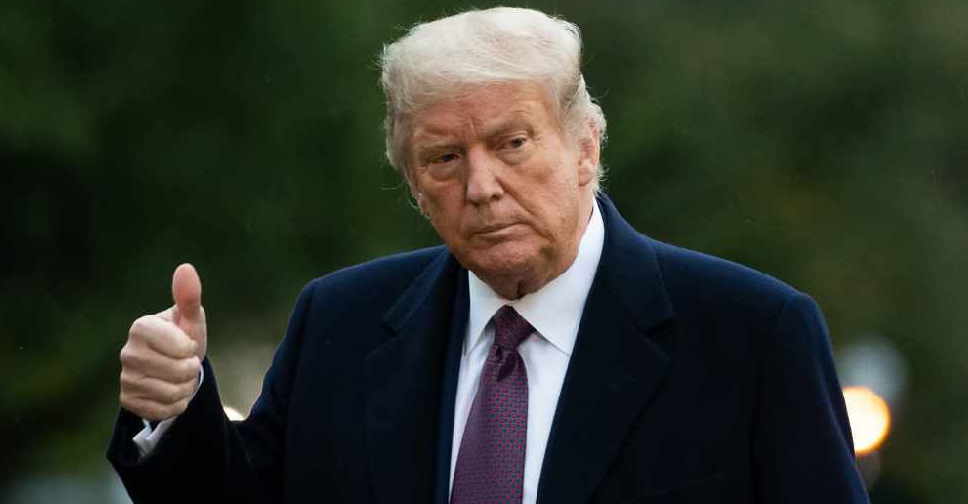
US President Donald Trump on Sunday signed into law a $2.3 trillion pandemic aid and spending package, restoring unemployment benefits to millions of Americans and averting a federal government shutdown.
Trump, who leaves office on January 20 after losing November's election to President-elect Joe Biden, backed down from his earlier threat to block the bill, which was approved by Congress last week, after he came under intense pressure from lawmakers on both sides.
The Republican president, who golfed on Sunday and remained out of public view even as the government crisis loomed, had demanded that Congress change the bill to increase the size of stimulus checks for struggling Americans to $2,000 from $600 and also cut some other spending.
It was not immediately clear why Trump, who has refused to concede defeat to Biden, changed his mind on the stimulus package. His resistance had threatened to inject further chaos into the final stretch of his presidency.
After signing the bill behind closed doors at his beachside club, Trump sought to put the best face on his climb-down, saying he was signing the bill with "a strong message that makes clear to Congress that wasteful items need to be removed".
"Much more money is coming," he insisted in a statement, though he provided nothing to back this promise.
And with less than a month left in office, Trump is expected to gain little or no traction with lawmakers to make changes.
White House officials have been tight-lipped about Trump's thinking but a source familiar with the situation said some advisers had urged him to relent because they did not see the point of refusing.
Democrats have long been on board with the $2,000 payments but many Republicans have opposed it, making it unlikely that the figure will be revised upwards while Trump is in office.
Many economists agree the financial aid in the bill should be higher to get the economy moving again but say that immediate support for Americans hit by coronavirus lockdowns is still urgently needed.
Unemployment benefits being paid out to about 14 million people through pandemic programs lapsed on Saturday, but will be restarted now that Trump has signed the bill.
The package includes $1.4 trillion in spending to fund government agencies. If Trump had not signed the legislation, then a partial government shutdown would have begun on Tuesday that would have put millions of government workers' incomes at risk.
Americans are living through a bitter holiday season amid a pandemic that has killed nearly 330,000 people in the United States, with a daily death toll now repeatedly well over 3,000 people, the highest since the pandemic began.
The relief package also extends a moratorium on evictions that was due to expire on December 31, refreshes support for small business payrolls, provides funding to help schools re-open and aid for the transport industry and vaccine distribution.



 Australia passes social media ban for children under 16
Australia passes social media ban for children under 16
 17 killed as Israel ups bombing in Gaza
17 killed as Israel ups bombing in Gaza
 Israeli tank fires on south Lebanon
Israeli tank fires on south Lebanon
 Landslides in Indonesia's Sumatra kill at least 27
Landslides in Indonesia's Sumatra kill at least 27
 Syrian armed group makes first advance in years
Syrian armed group makes first advance in years







